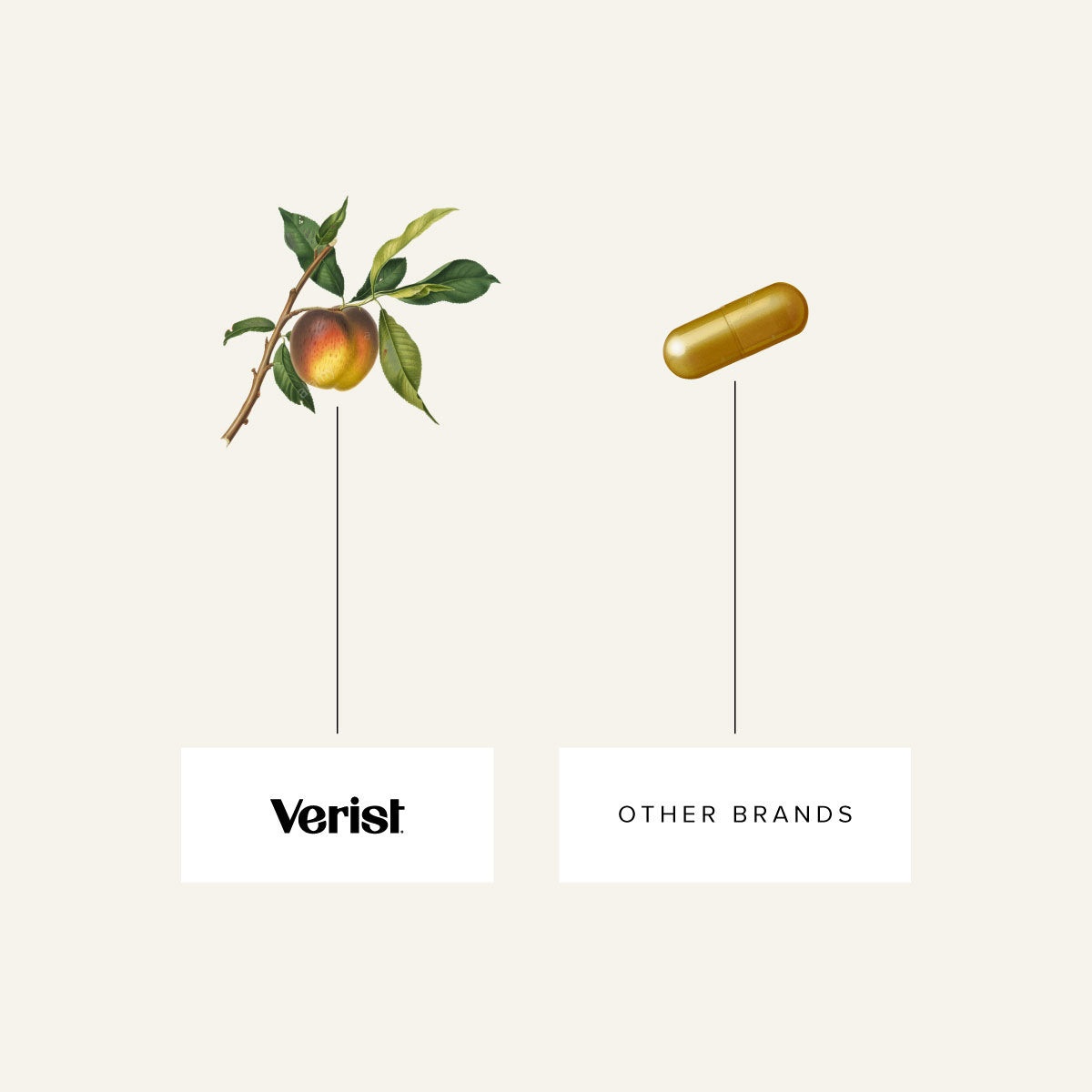What is CBD?
Although it’s been used by humans in various cultures for thousands of years (at least), CBD, or cannabidiol, is relatively new to the modern mainstream health supplement market—so no matter what you’ve already heard, you’ve probably got some unanswered questions. Read on for our guide to understanding the basics of this versatile and beneficial plant extract.
OK, SERIOUSLY: WHAT IS CBD?
CBD, or cannabidiol, is a nonintoxicating phytocannabinoid (a naturally occurring plant compound) found in hemp and cannabis plants. Unlike THC, another phytocannabinoid, it does not cause a high—but it has been shown to have a variety of beneficial effects. Full-spectrum CBD products (including ours) do contain <0.3% THC, but this amount is nowhere near enough to cause any psychoactive effects.
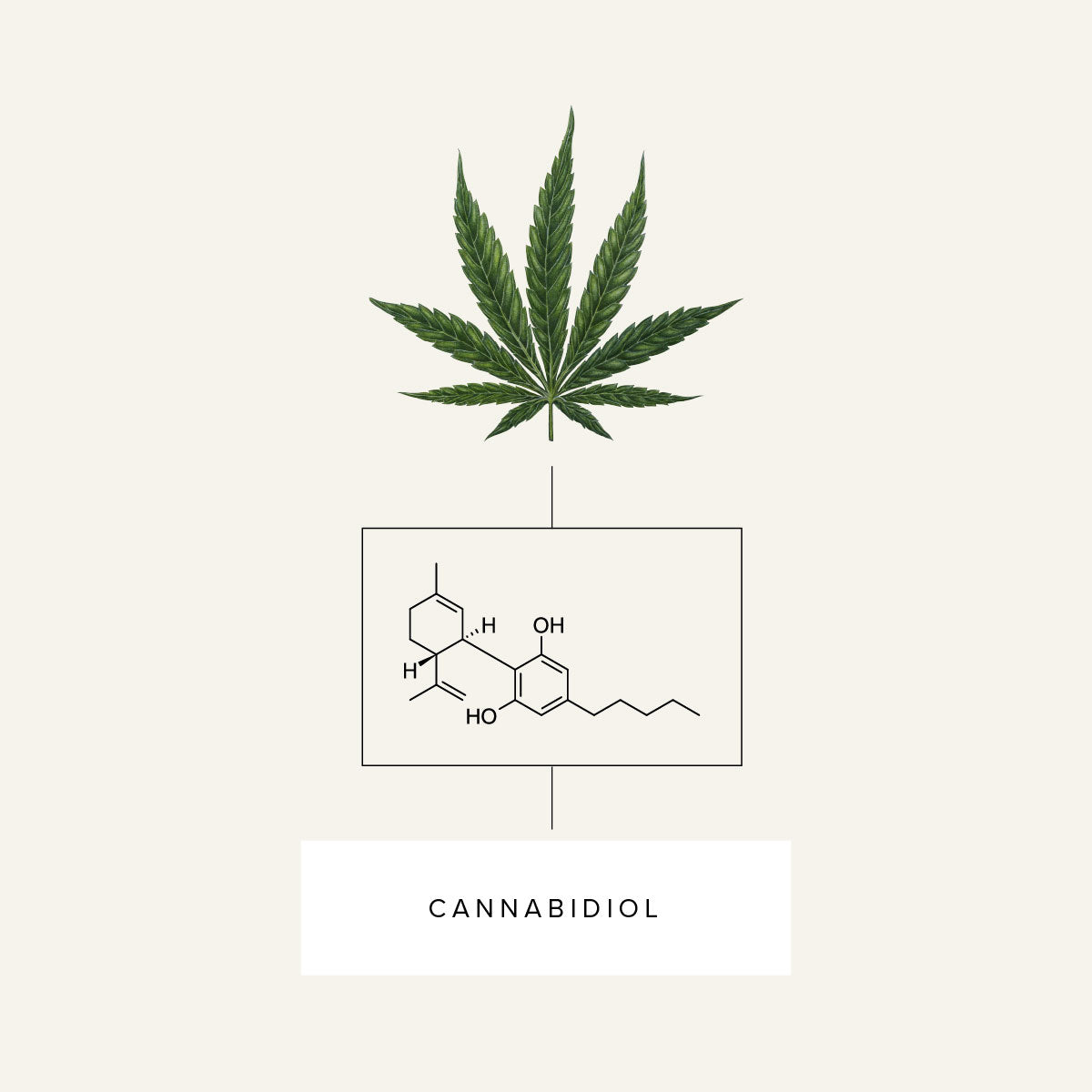
WHAT’S THE DIFFERENCE BETWEEN HEMP AND CANNABIS PLANTS?
Technically, nothing. Hemp, also known as cannabis sativa L, is actually a type of cannabis plant—a larger plant genus that also includes marijuana plants under its leafy umbrella. Hemp is a federally legal cannabis plant in the U.S., due to the fact that it contains less than 0.3% THC, and marijuana is an illegal cannabis plant in many states, due to the fact that it contains more than that amount of THC. Over the years, the term “cannabis” has become culturally synonymous with marijuana or weed, but in fact, this category of plants includes both hemp and marijuana.
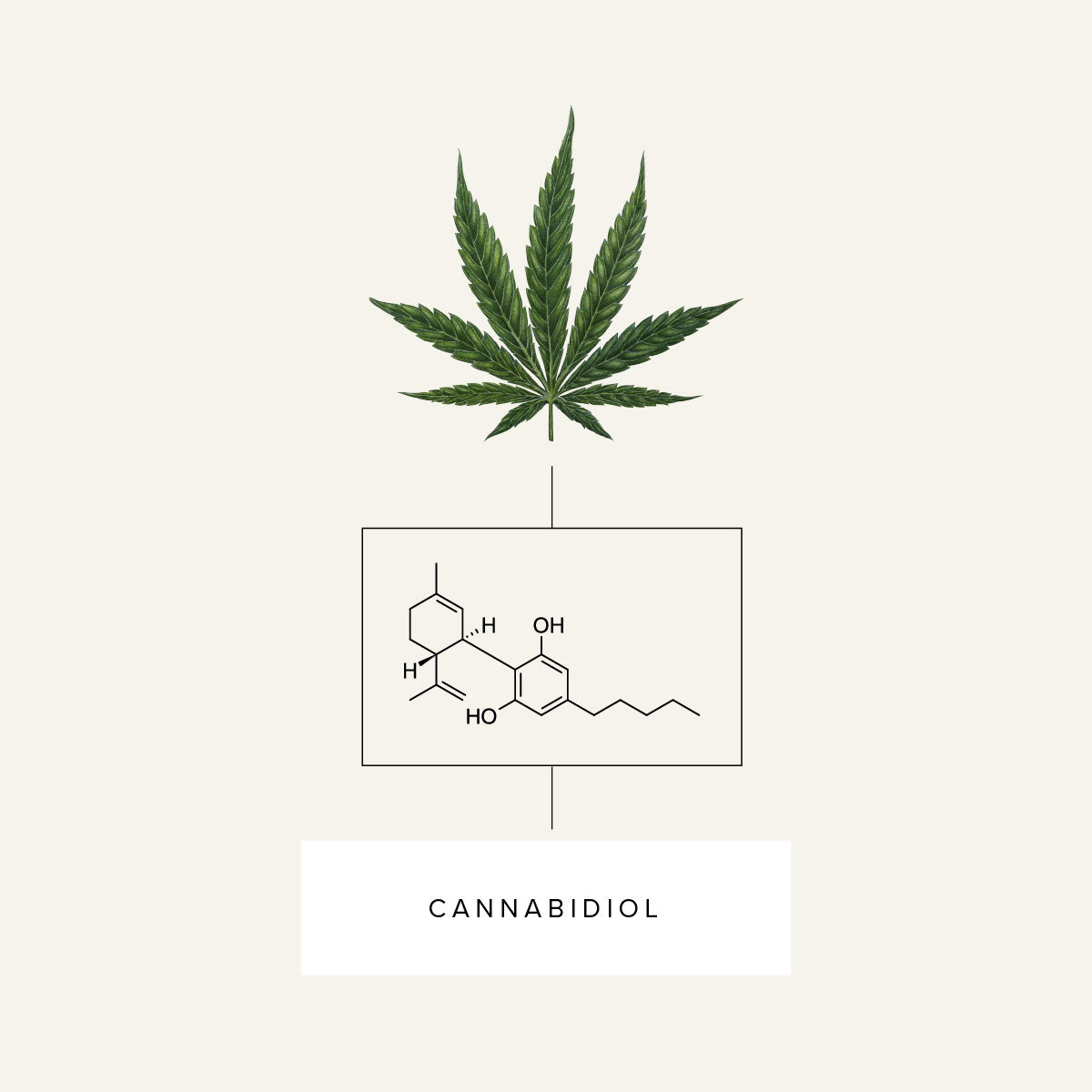
OKAY, SO CBD WON’T GET ME HIGH. WHAT CAN IT DO FOR ME?
CBD can have a lot of different benefits, and how it affects one person is likely to be
different from how it affects another. Below are a few of its most common uses.
MOOD MANAGEMENT
CBD may be able to help with feelings of anxiety or unease by interacting with the serotonin receptors in the brain. For example, in one study conducted on adults suffering from either sleep or anxiety problems, 79% of the anxiety sufferers reported improvement in their symptoms after taking 25 mg of CBD in the morning for just one month.
SLEEP MANAGEMENT
In much the same way that CBD can help manage mood, it may also be able to help with falling and staying asleep. In the same study referenced above, 66% of participants suffering from sleeplessness saw improvement after taking 25 mg of CBD at bedtime for one month, although their decline in symptoms was not as smooth as for those with anxiety.
PAIN MANAGEMENT
The effects of CBD on the brain’s receptors, as well as its potential to reduce inflammation, may also be able to help manage pain. Studies have shown that cannabis can offer some benefits when taken after chemotherapy treatments. Other preclinical studies are examining the role of cannabis in relieving symptoms caused by arthritis, chronic pain, MS pain, muscle pain and spinal cord injuries.
SKIN CARE
The effects of CBD on immune system receptors may help reduce overall inflammation in the body—possibly including acne and other inflammatory skin disorders. One study found that applying CBD oil to the face prevented overactivity in sebaceous glands (a cause of acne), and another study found it was effective at improving quality of life for patients with psoriasis, atopic dermatitis and related scarring.
BUT HOW AND WHY CAN CBD DO ALL THESE DIFFERENT THINGS?
In a word, science. The human body contains naturally occurring endocannabinoids—molecules that help the body’s systems run smoothly. These molecules are part of a larger cell-signaling system called the endocannabinoid system, or ECS, which scientists believe is responsible for maintaining homeostasis. In other words, when something happens to throw the body off kilter, the ECS kicks into gear to set things right again. The ECS affects a wide variety of functions including mood, sleep, appetite, pain, memory and more, so it wields a lot of power in the body. The naturally occurring phytocannabinoids in CBD work with the ECS, supplementing naturally existing endocannabinoids to promote overall well-being.
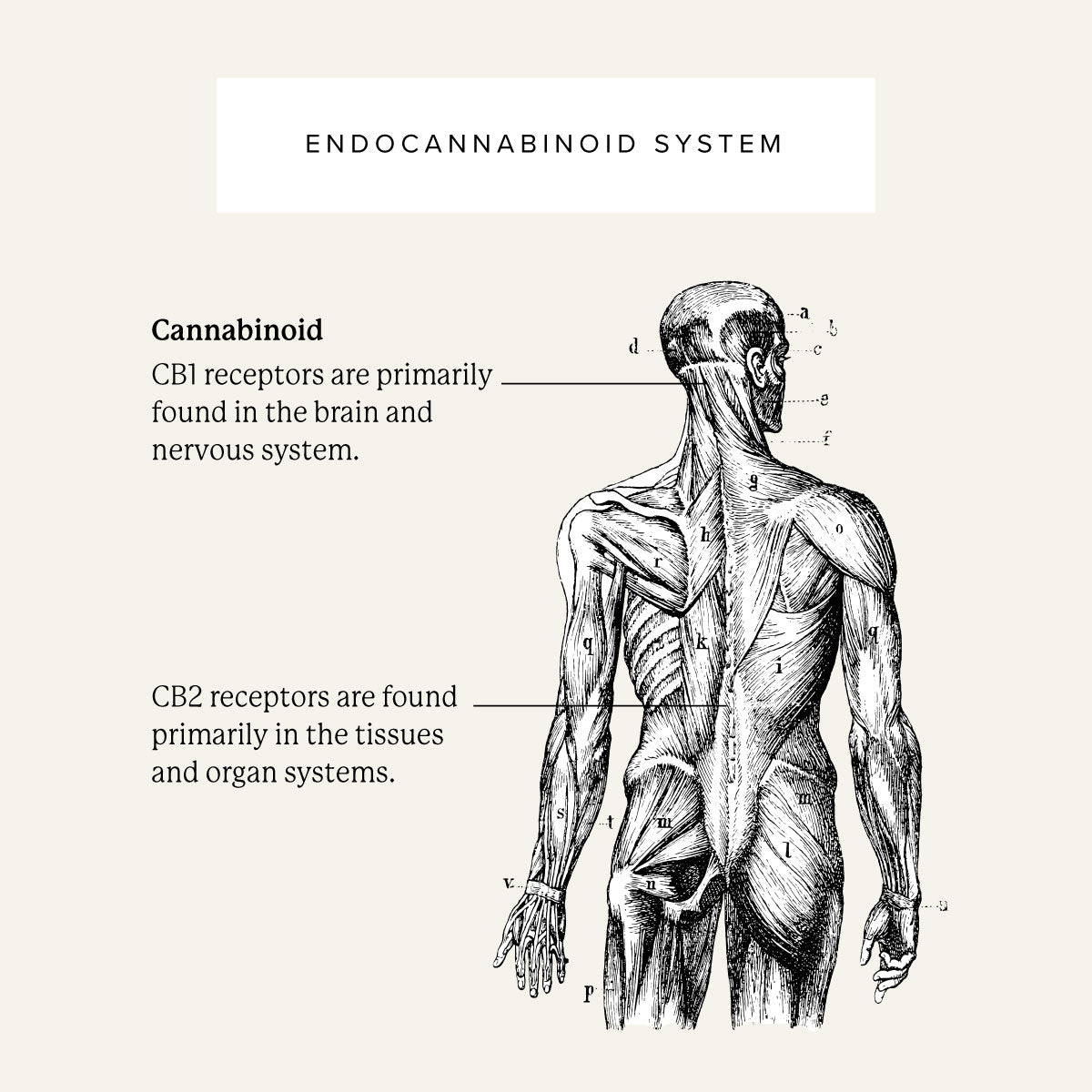
DOES TAKING CBD HAVE SIDE EFFECTS?
It could, but they’re fairly rare and minimally disruptive. Taking way too much CBD can result in feelings of nausea or dry mouth, which is why we recommend starting slow and ramping up your dosage to find what works for you. Our usage tracker can help with this. Overall though, the fact that it’s well-tolerated by most people is another of CBD’s myriad benefits.
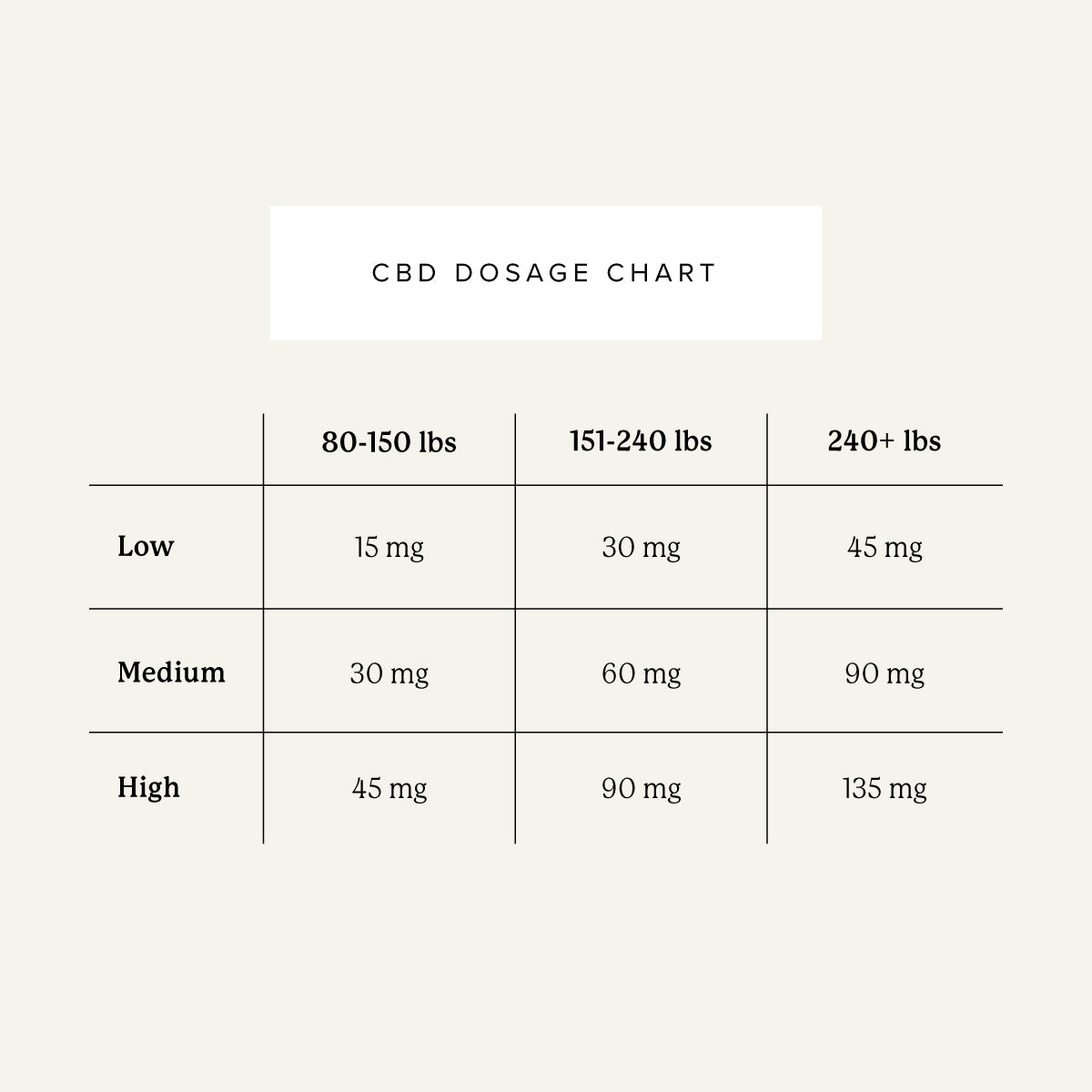
IS CBD ONLY FOUND IN CANNABIS PLANTS?
Most CBD on the market (including ours, which is extracted from hemp) comes from cannabis plants, but recently, some companies have been finding ways to derive a molecularly identical CBD from other sources like orange peels and hops. The main purpose of doing so is to avoid any connection to the THC (however low the amount) that naturally occurs in cannabis plants. These non-cannabis CBD efforts are still in their infancy, but one exciting benefit of the research is that it may help discover ways to isolate certain cannabinoids or terpenes to test their effectiveness at treating specific conditions, allowing for more precise CBD-based treatments in the future.
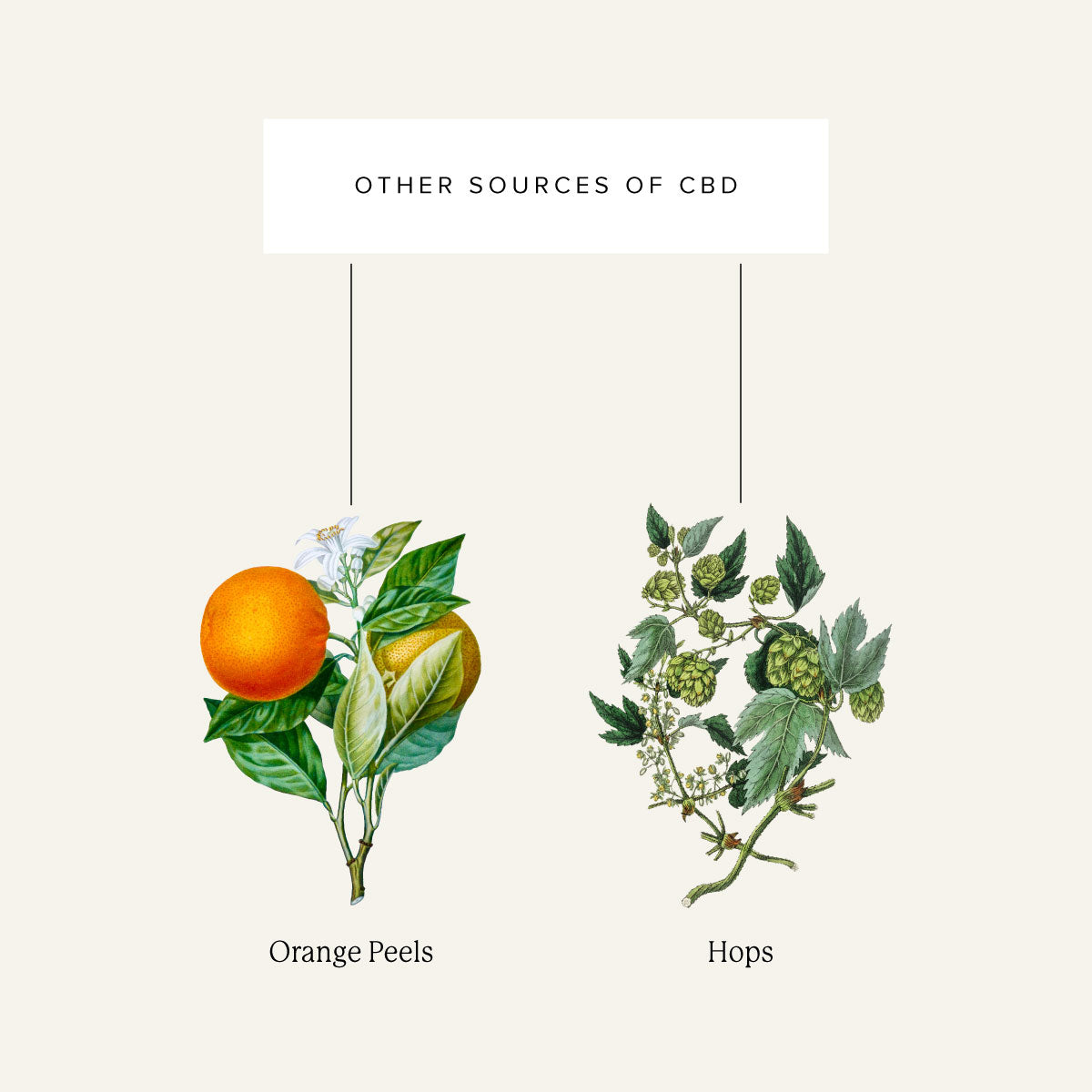
WHAT’S THE DIFFERENCE BETWEEN FULL-SPECTRUM CBD AND BROAD-SPECTRUM CBD? WHICH ONE DOES VERIST PRODUCE?
Full-spectrum CBD contains all naturally occurring cannabis terpenes and phytocannabinoids, including up to 0.3% THC. Broad-spectrum CBD contains the same naturally occurring cannabis plant compounds, but with the THC extracted. A third form of CBD, CBD isolate, is pure CBD, containing no other cannabis plant compounds and no THC. Verist products contain full-spectrum CBD, with a THC level of less than 0.3%, as we believe the most effective CBD remedies leverage all naturally occurring phytocannabinoids and terpenes.
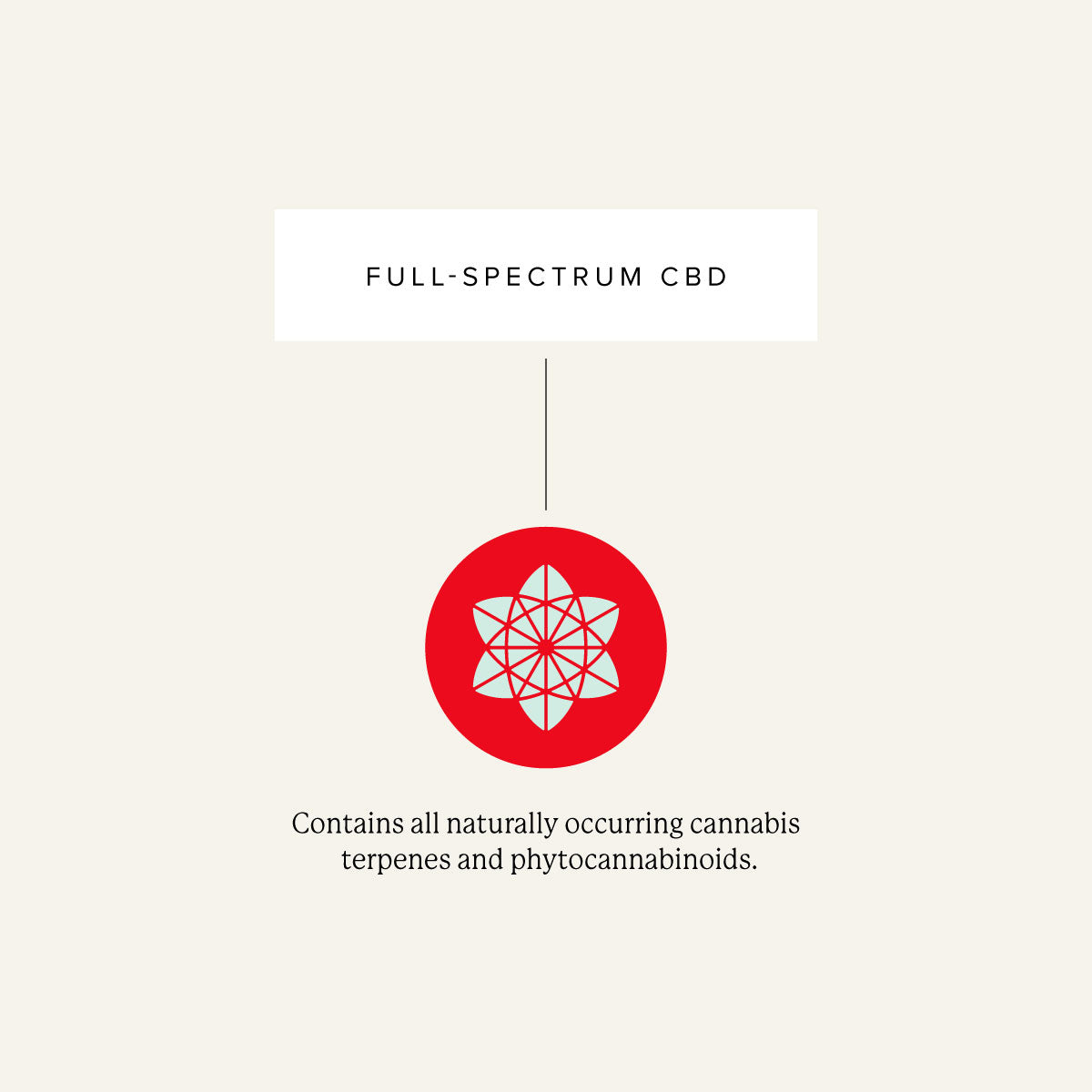
WHAT MAKES VERIST CBD DIFFERENT FROM OTHER BRANDS?
The growing process is a huge part of why it makes sense to choose Verist over any other hemp brand. As a fourth-generation family farm, we’ve been farming in the same part of the Minnesota River Valley for over 130 years. We know our soil, and we use sustainable farming practices to get the best results out of it. Our hemp selection process is another reason. We start with genetics that provide the highest therapeutic qualities, and then we further examine and identify the phenotype with the cannabinoids and terpenes we believe will be most desirable for the body and the palate. When it comes to the extraction process, we extract full-spectrum CBD to create products that have the most potential to be beneficial. While broad-spectrum CBD or CBD isolate may be right for some people, to us it feels more like taking a vitamin rather than just eating your vegetables.
